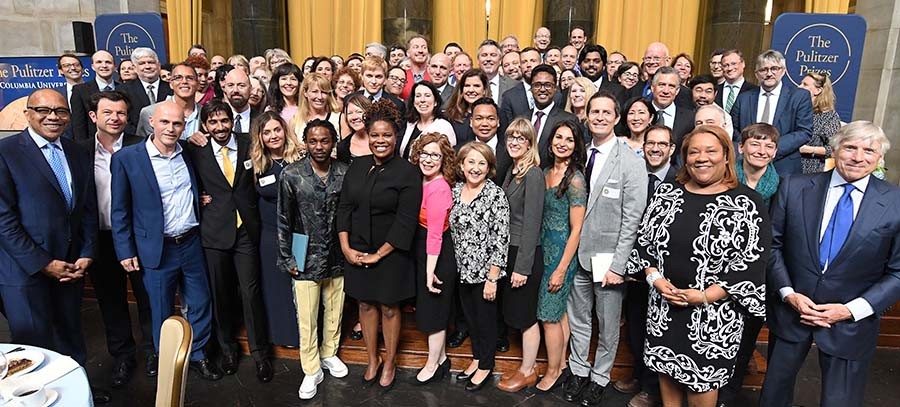The 2018 Pulitzer Prize Lunch

The Pulitzer Prize Class of 2018
Remarks by Columbia University President Lee C. Bollinger
May 30, 2018
In any given year, the awarding of the Pulitzer Prizes is a singular moment in the annual cycle of noted and noteworthy events. The Prizes stand out in a world not wanting for awards and prizes, capturing the attention of professionals and the broader public because they somehow seem both to sum up what has just happened in our lives while marking the extraordinary creativity in journalism and the arts that have so illuminated these happenings. How prizes achieve this status is something of a mystery, but we know that they can only continue to have it if there is a deep integrity to the process of selection over time, and, I am always happy to testify as a Board member, as well as the President of this great University, that I’ve never been part of anything that has more dedication from more talented people committed to doing the best job humanly possible than is the case with the Pulitzer Prizes, helped in this regard by great Administrators like Dana Canedy.
So, the Pulitzers are always uniquely important, but I believe this year will stand out in the now century-long history of the Prizes as among the most important. This is not only because of the new and wider reach of the Prizes into realms where creative genius resides, such as we do today with music, but also because we are living in an era that demands of us a new understanding of and confrontation with the abuses of power. On the political front, I think it is clear that the nation is facing the most serious internal attacks on the fundamental values and institutional structures that define a democracy since the Pulitzers were introduced a century ago—then precisely to counteract problematic authoritarian tendencies throughout the society. As I have noted on many occasions, the inauguration of the Prizes was nearly simultaneous to the beginnings of the Supreme Court cases in 1919 that formed the basis of the modern notions we have now about the constitutional rights of freedom of speech and press. This, too, was prompted by the alarm over the rising tide of intolerance and censorship that was floating across the country. We are, indeed, fortunate that these, and other, bulwarks of freedom and respect for basic values of truth-seeking—and truth protection—in a framework of self-government and a Rule of Law—took root, prospered, and, I think, on the whole, succeeded.
So much so that I personally feel confident we can now, with clear focus and deep dedication, such as we are recognizing here this afternoon, preserve the character of genuine democracy that has defined the nation in its best moments and inspired so many around the world.
Now, happily and with gratitude, we turn to the awarding of the Pulitzer Prizes for 2018.